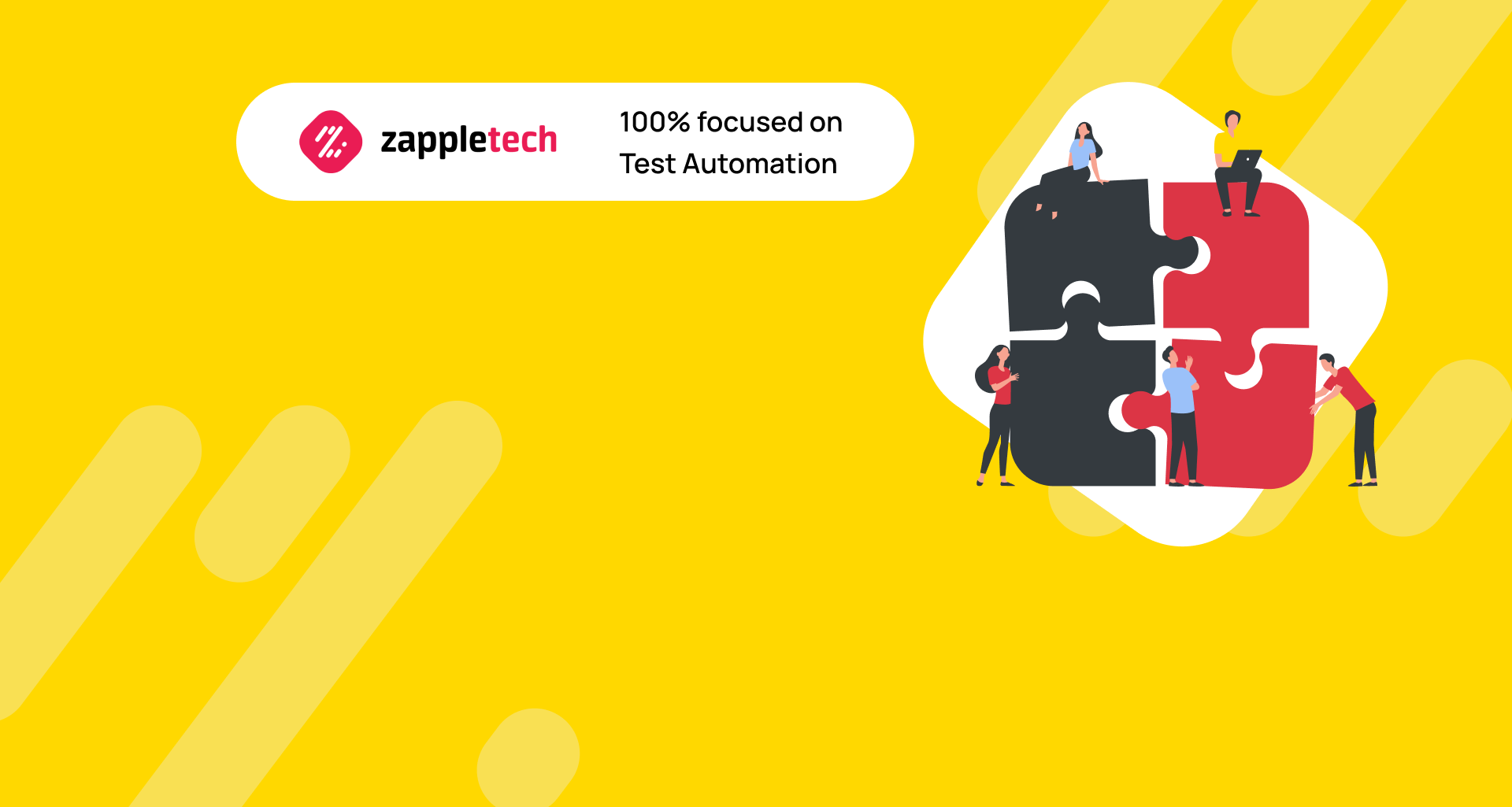The field of test automation is growing rapidly. This is evidenced by the report of the Verified Market Research analytical group, in which they predicted the growth of the industry with a CAGR of 18.36% until 2028. Thus, the value of the test automation market will rise from $16.9 billion in 2021 to $63.9 billion in 2028.
This industry’s popularity is driven by a number of critical factors that affect the viability of IT products. The key one is user experience because only the consumer determines the value and relevance of a digital solution on the market, and it depends only on them how long an app, website, or another virtual project will last in the end. That is why it is so important to provide it with an appropriate level of quality with the help of QA services.
When we talk about QA services, we most often mean complex quality assurance services and do not get hung up on details. And although there are quite a few types of these processes, the most effective ones can be distinguished from them. These are: functional, user, interface, unit and integration testing. It is on the latter that we would like to focus your attention in this material.
We are the Zapple Tech expert team. And today, you will learn about the importance and market-leading integration test automation tools.
Table of Contents
What Is It
Testing integrations and modules in the software, as well as among themselves, involves checking the functionality of fragments within the system.
This approach allows you to effectively identify the entire IT solution’s problems or the modules within the system. Why is this needed? To timely find errors in the operation of a digital product with external integrations. This type of QA service is suitable not only for finding bugs when combining internal modules but also when working with third-party resources, such as payment systems, connected databases, PIM platforms, etc.
Any other embedded software program component can be checked using this type of verification, making it one of the most requested QA solutions to many of today’s problems that arise when implementing external or internal modules.
Problems That Integration Testing Solves
Testing operations of this type can be divided into three steps:
Autonomous search for errors in a fragment.
Checking the system with fragments integrated into it.

The first step is performed directly by a developer upon completion of work on the module. They independently test the functionality of the unit and integration the code inside the production environment.
The second step requires the deployment of software components in a test environment and the presence of specialists in the QA process. They check the elements for errors, sequentially or in parallel interacting with them inside the finished working environment.
The third step involves a comprehensive check of the entire system with ready-made modules integrated into it. It allows you to find non-working sections of code that do not fulfill their purpose or function incorrectly due to other system components. This type regression testing identifies key problems and enables developers to correct shortcomings of the IT solution.
Top-10 Solutions for Testing Implementations
Due to this type of QA service’s peculiarities, specialists need reliable integration testing tools that can work with test environments, various programming languages, and types of integrations. We bring to your attention our own top 10 best solutions on the market for best integration testing tools for QA specialists.
Codeception – PHP
A progressive solution based on PHPUnit. It easily copes with almost all types of testing, including many integration tests. It can be used as a standalone tool or integrated into ready-made platforms with deployed test environments.
Benefits:
Simple commands to test REST and SOAP.
Support for Symfony, Laravel, Zend, Yii, Phalcon frameworks.
Integration into modern test platforms.
Codecepticon is one of the best tools for solving complex problems.
Cypress
A lightweight and fast tool for cross-browser testing. With it, you can easily write and run a test script for a website or an app. Supports most common types of unit testing.
Benefits:
Easy and understandable script syntax.
Own test runner.
Advanced integration with external platforms.
This solution is one of the best in the QA market because it provides maximum functionality that even a novice tester can do.
Playwright
A modern API solution for testing web applications of any complexity. With this tool, you can easily set up test suites and scenarios for all types of QA services. A flexible script editor is also provided, covering 90% of test cases.
Benefits:
Single space for all web platforms.
Isolated test environment.
Support for capturing actions to play them back.
With this tool, you can almost completely cover the main tasks of testing web apps and sites.
Selenium
A universal player in the QA tools market. Its popularity is due to a wide range of functions that allows you to adapt scripts to any testing task. One of the best solutions in the tester’s arsenal.
Advantages:
Object-oriented API.
Extended syntax for scripting.
Wide coverage of supported devices and languages.
Despite the high threshold of entry, this tool increases the efficiency of finding errors for everyone who was able to master it.
WebdriverIO
This framework is designed to test mobile and web apps. The functionality covers all relevant tasks for providing QA service. It stands out for its ease of setup software testing and moderate “appetite” for device performance.
Benefits:
Support for React, Angular, Polymer, or Vue.js.
Working with native frameworks for IOS and Android.
Extended scripting syntax.
This tool is representative of Next-Gen solutions that can speed up the work of QA specialists and improve the efficiency of eliminating bugs in software.
Jasmine
This testing framework belongs to the BDD type and aims to improve the quality of JavaScript code testing. With it, you can test both mobile and web apps based on Node.js. Scripts are created using a native syntax that is available to almost all representatives of the QA industry.
Benefits:
Easy integration into the test environment.
Large coverage of test cases.
JavaScript syntax support.
A unique and quick-to-learn tool that can increase the efficiency of testing apps and progressive web resources.
Citrus
A young but promising player in the QA integration test automation tools. Developers indicate support for Kafka, HTTP REST, JMS, TCP/IP, SOAP, FTP/SFTP, SSH, XML, and JSON but are not limited to this list. Also, the authors assure that this solution will provide a whole new operational experience and integration testing process for QA specialists.
Key features:
Wide range of supported technologies.
Easy scripting syntax.
Implementation in popular test environments.
This tool will equally increase the efficiency of finding and fixing bugs for both beginners and industry experts.
Testcafe
A comprehensive platform for launching all modern types of testing. The unique script editor system allows you to adapt any scripts for specific tasks. The operational capabilities of this solution cover 90% of all test cases and tasks.
Benefits of the tool:
Support for several kinds of syntax.
Easy initial setup.
Integration with popular test environments.
A modern tool to deal with the worst digital bugs.
JUnit
This test framework is based on the concept of TDD and provides maximum convenience for scripting. The new fifth generation has incorporated the best practices of the original project to provide experts with the best experience in the testing process.
Key features:
Java-oriented syntax for test programming.
Low hardware load on the device.
Support for all types of tests.
This tool can compete with popular solutions in terms of efficiency in solving many test data and problems.
Protractor
Comprehensive solution for end-to-end testing of web apps. The specifics of the digital product are focused primarily on working with Angular.js, although it also supports other frameworks.
Tool features:
Quick installation and configuration of the test environment.
Easy and understandable script syntax.
Flexible launch options configurator.
An interesting solution that provides 100% coverage of test tasks for working with digital solutions based on Angular.js.
Summarizing
Integration testing is an integral part of the QA service suite. For better efficiency, we recommend doing unit tests using up-to-date tools, including those from our top list. But it’s still worth delegating testing tasks by industry experts for a perfect solution to the IT product quality challenge.
Zapple Tech team has been providing quality digital solutions for over 10 years. We work with international companies and help them with the release of bug-free apps, websites, and IT systems. Would you like us to perform complex project testing for you? Write to our manager!




